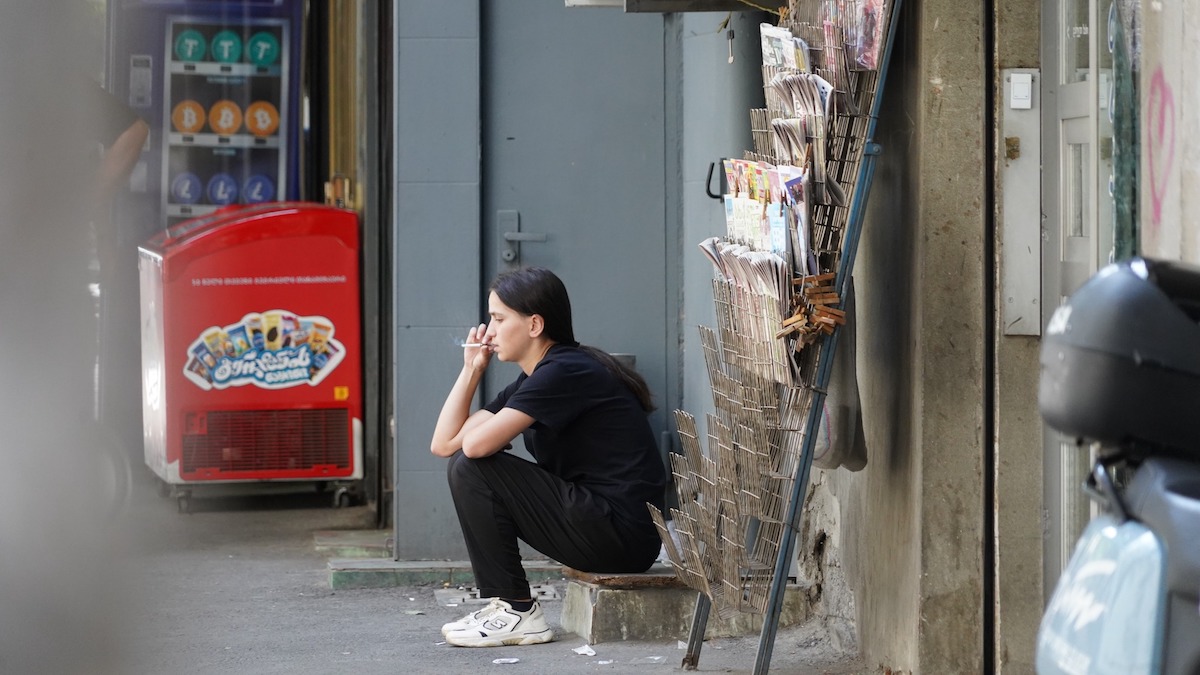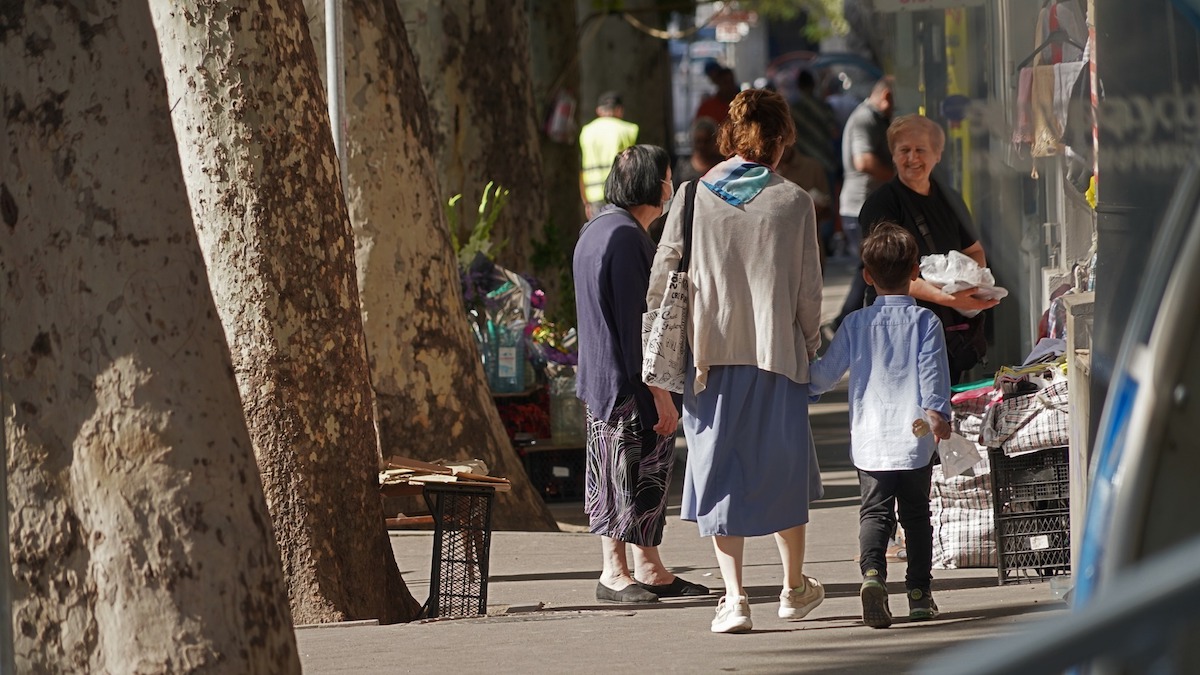In Tbilisi, 20 activists were arrested during a loan-related eviction amid barricades and a police clash
A loan-related eviction in Tbilisi
In central Tbilisi on January 23, up to 20 individuals were arrested on Kekelidze Street following confrontations with police and enforcement bureau personnel. The clashes ensued during the eviction of the Khatiashvili family, burdened by a prolonged and substantial financial debt on a bank loan.
Two of the detainees face criminal charges, while the other 18 were arrested on administrative charges, including disobeying a police officer and disturbing public order, as reported by the ministry of internal affairs press service. Renowned journalist Gela Mtivlishvili is among those taken into custody.
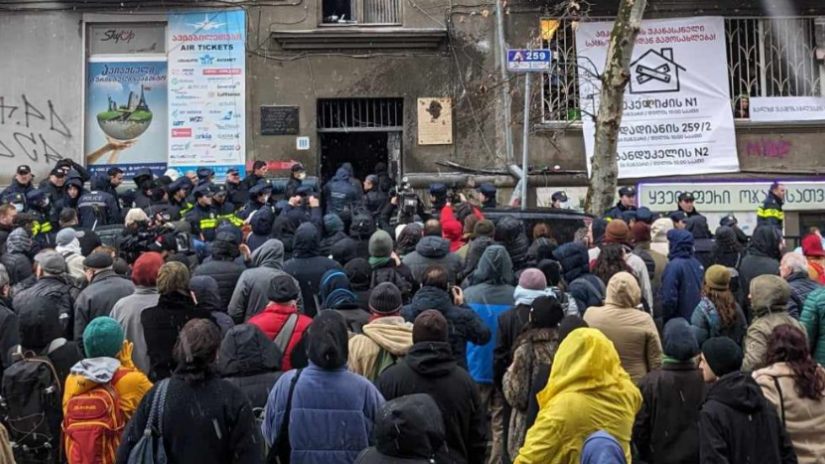
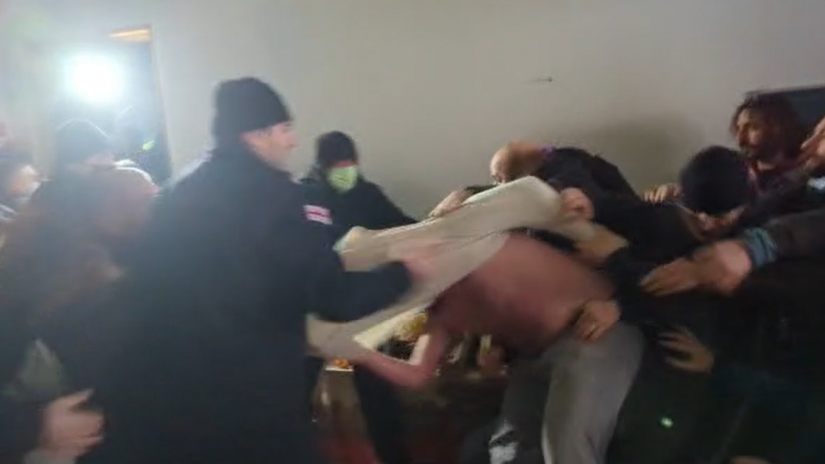
The Khatiashvili family’s impending eviction stirred anticipation days prior, with police mobilizing near residence number 1 on Kekelidze Street in Tbilisi on the morning of January 23.
A multitude of individuals, including relatives, activists, and those informed through social media, gathered to support the family as enforcement bureau personnel worked for over two hours. Attempts to enter the apartment, remove furniture, and compel the Khatiashvili family to vacate faced resistance from people who erected barricades.
Upon reaching the welded front doors, law enforcement encountered a formidable obstacle. With the aid of special equipment, patrol police, and emergency situations ministry personnel, they eventually gained access to the apartment.
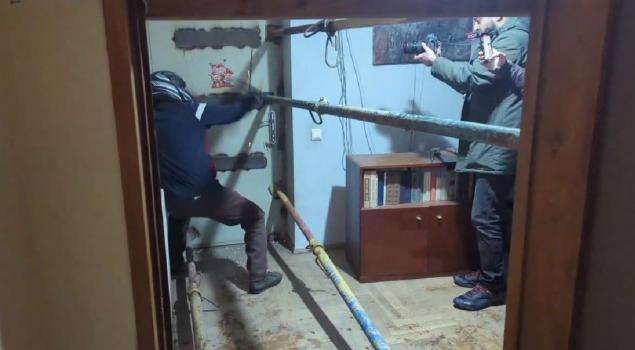
In the course of the confrontation, multiple individuals sustained injuries, and a law enforcement vehicle incurred damage.
Despite the challenges, law enforcement officers successfully expelled the Khatiashvili family from their apartment, completing the eviction process.
Complicating matters, Tbilisi experienced snowfall and sub-zero temperatures during the morning.
Reports circulated on social media alleging the use of tear gas by law enforcement officers during the eviction. While visible smoke appeared in televised footage, the police refute deploying gas. Contrarily, the enforcement bureau asserts that supporters of the family deployed pepper spray, resulting in injuries to several police officers.
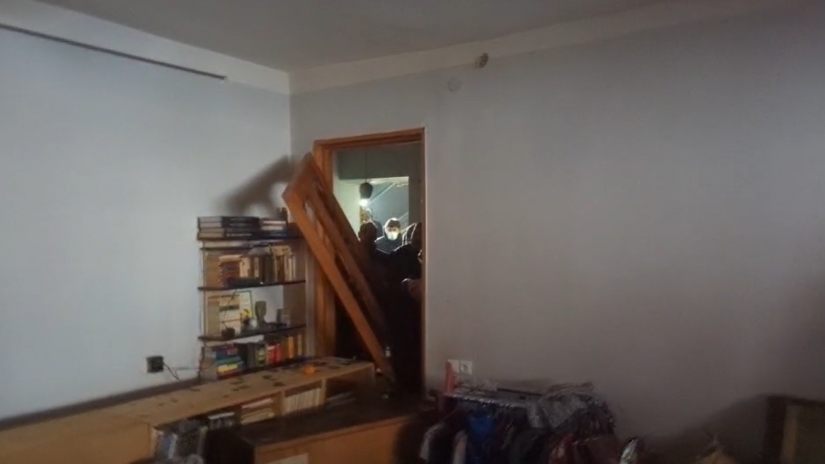
The saga of the Khatiashvili family
It traces back to 2008 when Marine Khatiashvili, an art critic by profession, secured a $20,000 loan from Bank Georgia for a 10-year term. The family’s descent into homelessness commenced when, in 2013, as Khatiashvili says, she fell behind on loan payments by just a month and a half, prompting the bank to initiate legal proceedings.
Over the subsequent five years, Khatiashvili, burdened by fines, disbursed $43,000 to the Bank of Georgia – an amount exceeding twice the original loan. Additionally, the family made payments totaling $80,000 to private lien holders.
Marine Khatiashvili received her initial eviction notice from the executive bureau in the autumn of 2019, as reported by the Georgian edition of Radio Liberty.
In response, she sought legal recourse, leading to a court decision that temporarily halted the eviction process for three months, until February 4, 2020.
On that day, the family, along with its supporters, resisted enforcement bureau officers, resulting in further discussions and yet another deferment of the eviction process, this time until March 20, 2020.
However, in early March, the onset of the Covid-19 pandemic prompted the state to declare a comprehensive moratorium on all evictions.
Another attempt to evict the family was made on June 17, 2022. By this time, the bank had already sold the apartment at auction, and it had new owners.
However, even then the eviction was not completed. A crowd of relatives and supporters blocked the street and resisted.
The last time the police came to Khatiashvili was exactly a year ago, on January 23, 2023. But even then, after a confrontation with a large group of supporters, the process of eviction of the family was postponed.
What will happen next?
Marine Khatiashvili reveals injuries sustained by her family during the eviction process. She alleges that law enforcement agencies damaged family belongings, including a precious family library, during their intervention.
“They threw everything into the street, the things of my ancestors, scattered rare books,” Khatiashvili conveyed to reporters, highlighting the extent of the destruction.
Marine Khatiashvili asserts that the state has not provided any alternative living arrangements. In the interim, the family intends to stay with friends.
Critics denounce the ‘vicious practices that don’t protect people’
Protests on Kekelidze Street persist post-eviction, with participants urging the public to join.
Vakhushti Menabde, co-founder of the Comment platform and a lawyer, stated his involvement in the protest as an ordinary citizen, emphasizing widespread discontent.
“Everyone sees this injustice. The family repaid three times the principal loan amount, yet they faced eviction in such harsh conditions, during winter. In many countries, evictions of citizens are prohibited in winter. Our legislation needs to be changed; it must become more humane. The state is obligated to provide housing to homeless individuals without financial resources,” remarked Vakhushti Menabde in an interview with On.ge.
The Center for Social Justice also labeled the actions of the state as “cruel.”
The organization’s employees were the first to report the impending eviction of the Khatiashvili family. They also caution that two more families in Tbilisi are slated for eviction in January due to substantial financial debts.
According to the Center for Social Justice, all three families are willing to settle their primary financial debts but currently lack the means to do so.
“In Georgia, such cases are not isolated. With a pernicious monetary policy, lenders are keen on acquiring mortgaged properties, exploiting the challenging socio-economic conditions of borrowers. They enter into loan agreements with them under oppressive terms, heightening the risk of losing their homes,” stated the Center for Social Justice.
“For years, the state has neglected the socio-economic vulnerability of evicted families, overlooking the presence of minors, pregnant women, children, disabled individuals, and the elderly. The risks of families being rendered homeless and destitute on the streets have been consistently disregarded.”










